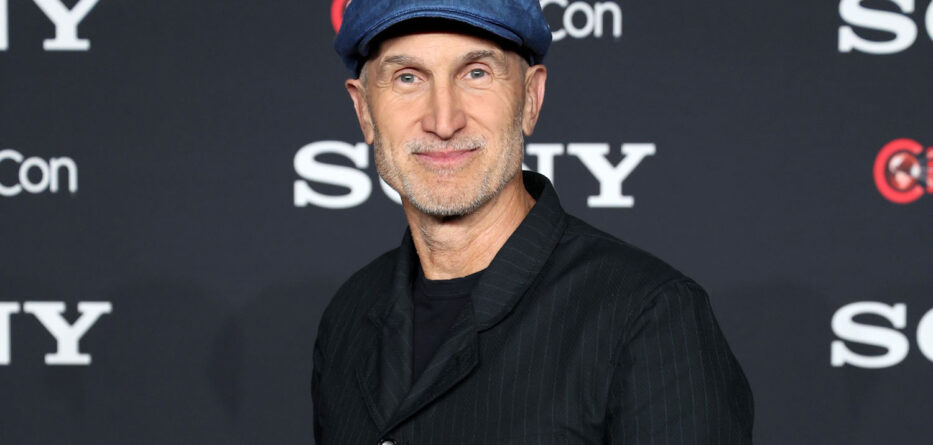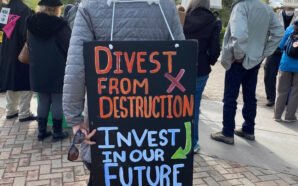Arturo Hilario
El Observador
Through the COVID epidemic, it was evident that among the deadly virus, social unrest and general uncertainty, there was also a huge economic inequality occurring.
The wealthy could continue to get wealthier, while those on the sidelines could only look on, losing work, family and friends and generally suffering through the pandemic. The 1% acquired nearly two-thirds of all new wealth created during this time.
But during a few crucial months in 2021, online spaces were in a chaotic frenzy as everyday internet users found a way to fight the behemoth of Wall Street and hedge fund investors at their own game.
It started on YouTube and Reddit (specifically the forum called r/WallStreetBets), where users who had been following a user named Roaring Kitty began to take his advice when he began suggesting to his followers that GameStop, the video game retailer often found in malls across the country, was undervalued, and with a collaborative push in buying stocks it could potentially soar in value.
Through social media consumers were able to tilt GameStop’s shares to a massive surge in its stock price, which then led to one of the wildest periods of the American stock market – it brought GameStop out of near bankruptcy, and instead led to the bankruptcy of some investment firms who bet on GameStop not being viable.
This story soon became a book, “The Antisocial Network” by Ben Mezrich, and that book became the basis for the new film Dumb Money, a frantic comedy drama directed by Craig Gillespie that takes audiences into the worlds of social media, finance, and memes. With a large ensemble cast which includes Paul Dano, Pete Davidson, Vincent D’Onofrio, America Ferrera, Nick Offerman, Anthony Ramos, Sebastian Stan, Shailene Woodley and Seth Rogen, Gillespie’s goal was to take the wild events and focus on the core story of the everyday people trying to get a win against the gargantuan figures of the stock market.
The director recently spoke to us about the experience of bringing these events to life, from his own experiences when the “short squeeze” of GameStop occurred, to how he and his team found the right tone to tell the story amongst the millions of memes and social media postings about it, and why he wants this film to start a conversation and keep people engaged about the inequalities.
Dumb Money is now in theaters nationwide.
| For a bit of reference: Shorting a company’s stock is placing a bet on the company doing worse in the future than it is doing now. When you short a stock, you are borrowing someone else’s shares and selling them, with the promise to return the borrowed shares at a later date. If the stock price goes down before you need to return the stocks, you make money. If the price of the stock goes up, you lose money.A “short squeeze” is a rapid increase in the price of a stock. This occurs when there is a lack of supply and more demand for the stock. When the stock rises a bit, it can force short sellers to buy stock to cover their bets. The act of buying the stock sends the price even higher, forcing even more shorts to buy even more stock.
|
Well, thank you so much for taking time to talk about Dumb Money. My first question, I wanted to know what your thoughts were on the events that inspired the novel before being attached to the film.
I was living this. It was during COVID. My son, who was 24 at the time, was on WallStreetBets early on, he was sort of looking at other stocks as well and the things that were moving and trading. And he would be talking about it as he was getting invested in it. And then when it ramped up to that two-week intense period, he was in on options, and he was trying to time when to sell.
Like, for that 24-hour period, he got to 400. He was literally checking every three minutes, getting up at 06:00 A.M. Trying to figure out when the moment was to get out, which he did get out, and he actually timed it perfectly. But then with the Robinhood freeze, the outrage, the frustration that happened online, I had a front row seat. So that intensity was what I wanted to bring to the film.
How did making Dumb Money compare to making other biographical films like I, Tonya or Million Dollar Arm?
They’re all slightly different, obviously. Dumb Money is about eight characters. So, we have a huge amount of characters that we’re juggling and a very complex story that we have to almost simplify in a way and make it accessible and relatable for everyone. Which is not hard to do, in the one sense, because the stakes are so high. I mean, they’re life changing stakes that are happening.
“We wanted to leave this film with people feeling outraged and I hope it just continues that dialogue, that it challenges people to be heard.”
And also, there was a veracity that we needed to check with this because we’re dealing with some very high-profile figures. So, we wanted to make sure that we got all the facts accurate, the depictions of what was happening, when it was happening, and how it was transpired because there was this real sense of a system that is rigged against the average person. So, we have to be very clear about those implications.
Now, since this is a very recent event and you yourself said that you saw it happen as it was unfolding, with all the sources, all this social media, how did you not get lost out in the weeds and focus on adapting what was in the book with all this going on?
We would get lost in the weeds at times. We actually had a team, when we were in post doing the editing that was pulling all of those memes, all of the information that was happening with the news anchors, with the late-night TV hosts, and we would compartmentalize it.
So, when we got to a section in the film, and we wanted to talk about options or we wanted to talk about the stock jumping by 100 points, we go to all those things that were happening in real time at that moment, all those memes, and we would start to look at hours of content and see what would work well and clearly in the film.
Could you tell me what it was like to manage all these great actors in the ensemble cast and try to get the most effective performances out of such a roster of talent?
It was interesting because it’s an unusual way to do a film. Typically, you make a film and your actors are there for this whole production and you get into a groove, and you get into a shorthand. With so many actors coming in for very short periods of time, it’s almost starting over.
Every week it’d be a new actor, a new location, and very quickly they’d have to figure out the tone of the film, which is specific. But I’m so fortunate to have gotten the group of actors I’ve worked with, many of them I’d worked with before, others I hadn’t but always really genuinely wanted to.
Like Paul Dano, for instance, was the first choice for this Roaring Kitty role and the dance that he can do with humor and drama. So, I’m finding actors that I feel can really work in this tone, and fortunately, they can. When they turned up, they were brilliant at it and so we could jump in very quickly and find a space that felt right, but it was very fun. Every week it would be a new adventure.
What is one thing that you’ve learned looking back now on adapting this story and learning about all the communities involved, the players and the events that unfolded?
That complicated 48 hours when Reddit shut down WallStreetBets and Robinhood had to shut down their buy option. Sort of getting into the weeds on that was really interesting because that was obviously a flashpoint for the frustration and the anger that was happening online, and it did crater the stock. And so, to see the fallout of that and why that was happening was fascinating.
I was looking on Twitter/X this morning and there were users who invested in AMC theaters stock taking pictures with the poster for your film, saying they needed to support the story and their investments. What are your thoughts on the fact that it’s still like an ongoing thing and the events of Dumb Money continue to ripple?
I love that. There are obviously people that have held, the stock is still shorted. There is this belief that it may rally again. I’m excited to see what happens with it. I’m hoping that it gets embraced by this community that we really try to portray and show their voice on a larger platform, and I’m hoping that they embrace it.
And what do you hope that audiences in general take away from the Dumb Money?
This is such a specific time in the world with COVID, there’s such intensity going on. A lot of loss of loved ones, this disparity of wealth that was happening in the country, people being unemployed, government handouts not being what they were promised to be. There’s this incredible frustration that I feel started then, it happened to be GameStop that people could rally around. But that frustration needed to be vented and it’s still being vented.
We wanted to leave this film with people feeling outraged and I hope it just continues that dialogue, that it challenges people to be heard.






